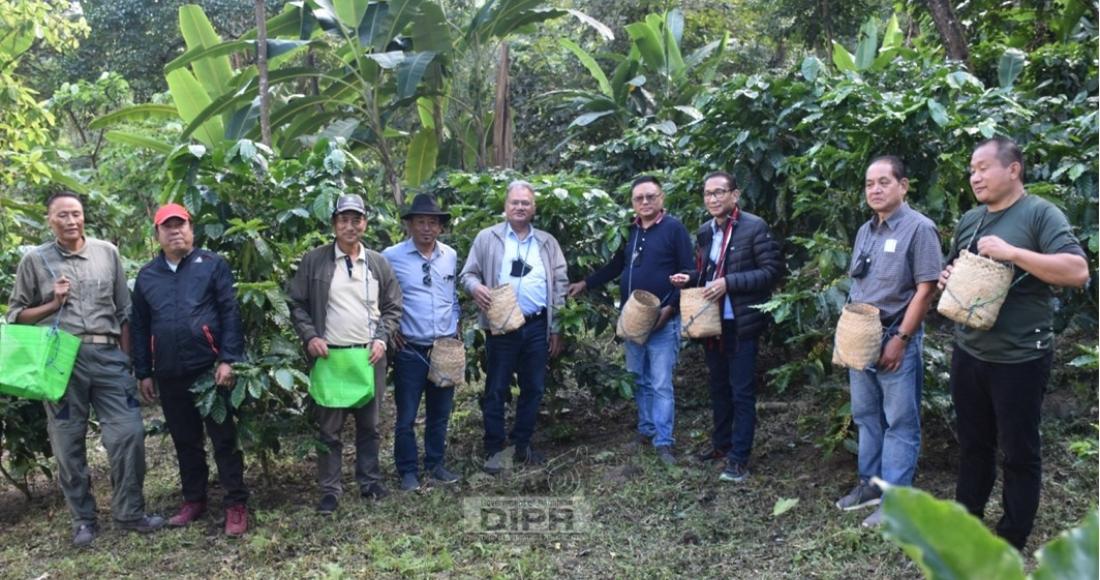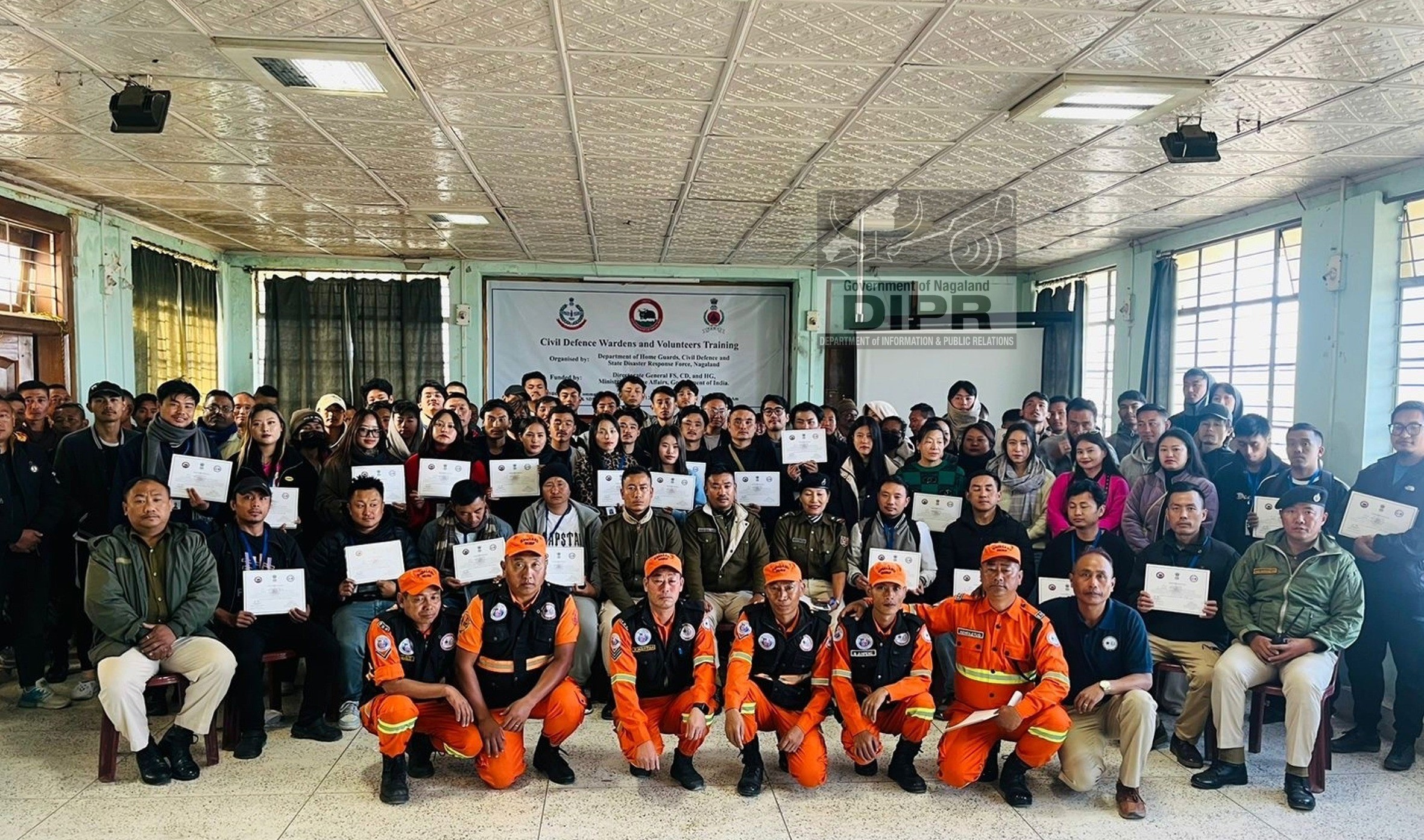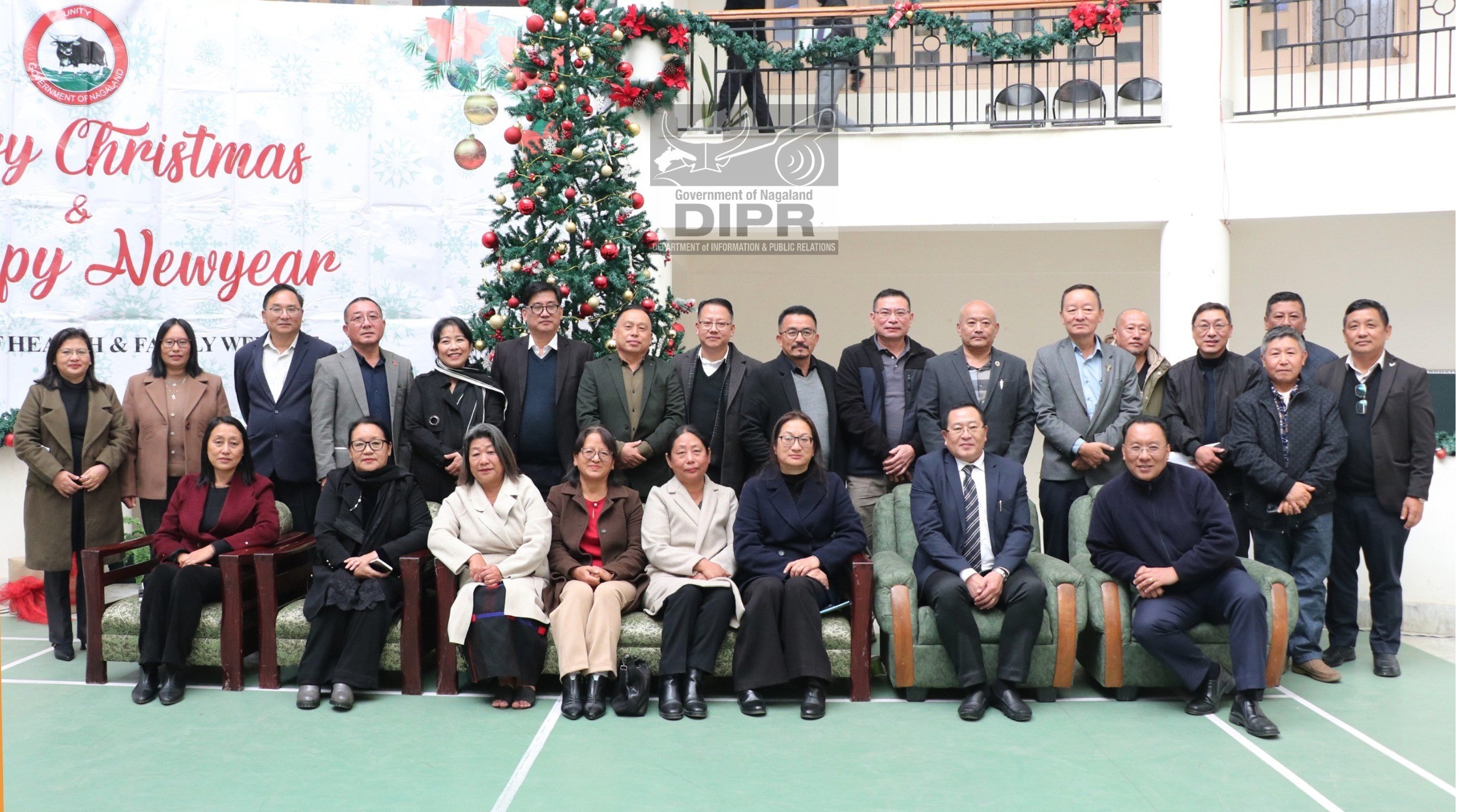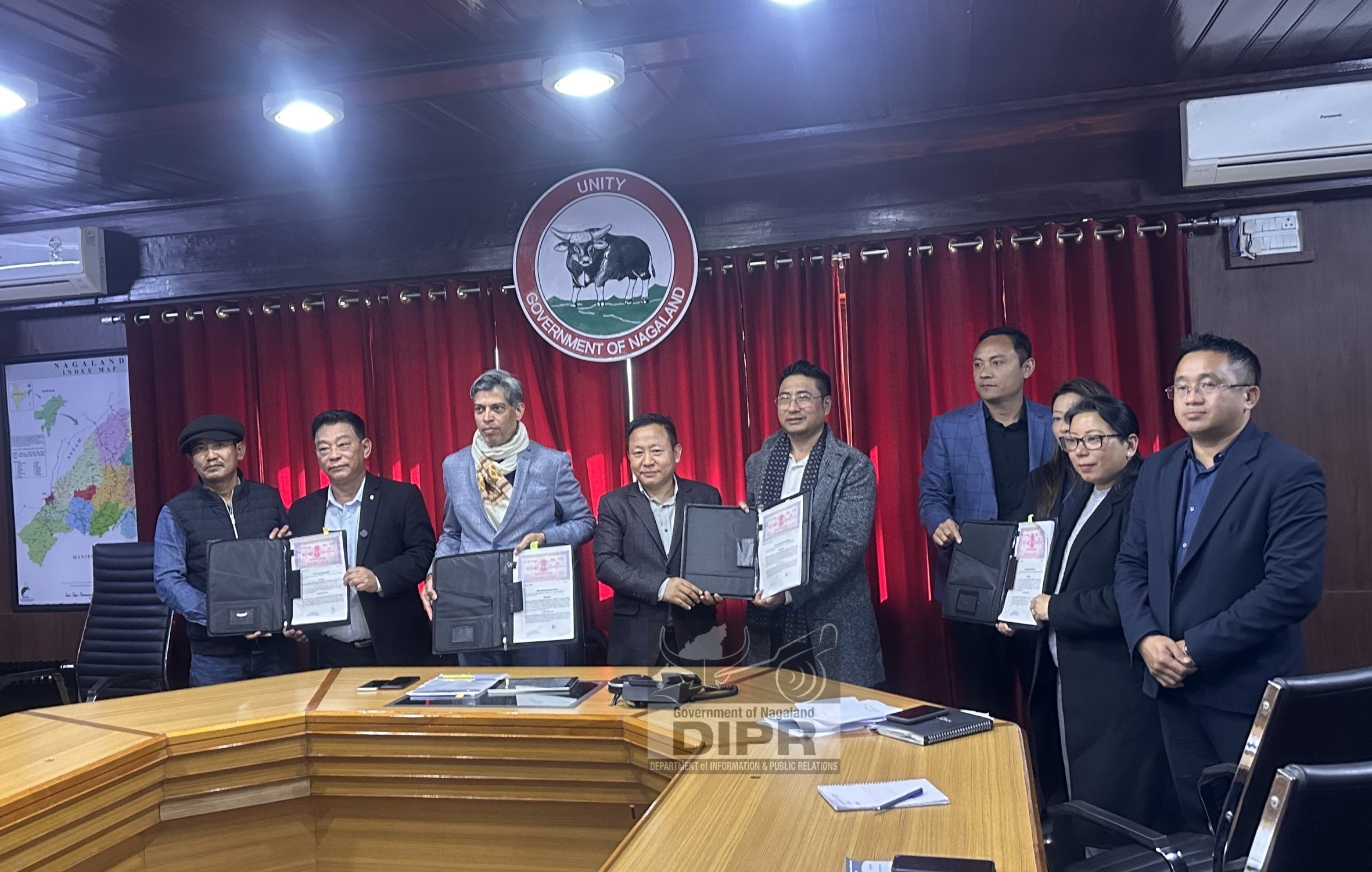Chief Secretary Nagaland, J. Alam with the Agriculture Production Commissioner, Nagaland, YKikhetoSema and Land Resources Department officials made an experiential visit to KAAS Coffee farm,Sendenyu village, Kohima on 4th November 2021.
The Chief Secretary expressed that he was delighted to experience an actual hands-on in the field for coffee harvesting and processing and marked that the visit was once in a lifetime experience. He stated that he was amazed as to how much work is actually going on in the ground reality and is admirable to see the progressive villagers undertaking such activities.
Alam stated that the government could not focus on many developmental activities during the pandemic but learned, how much we are dependent on the outside world and how much requirement is there for us to be self-dependent in terms of economic needs.
He stressed that the government employment has reached its saturation point, therefore the youths have to find and invest in other avenue and coffee being a very promising crop, he urged the youths to take up this kind of activities which are labour intensive and provide sustainable income.
‘Potential has always been there, and we are blessed with a very fertile land and huge resource, for the last decades we have been experimenting in different land based activities for viable crops unfortunately it failed because substantial activities was not taken into consideration’, he stated.
He also lauded the village for being a biodiversity conservative village and appreciated the efforts of the cautious villagers for protecting and conserving the density of forest which will contribute a lot in balancing the biodiversity. He also assured that the government will support in possible areas for the requirements and would take up with the concerned department for further development.
Agriculture Production Commissioner, Nagaland, Y KikhetoSema, stated that the hills of Nagaland, are now growing organic coffee, which is not only being sold locally but exported in international markets. He also highlighted that coffee, was introduced to the farmers of Nagaland in the 1980s but lack of market linkages and other factor forced the farmers to give up the cultivation. Headed by him, LRD in 2016 again decided to revive coffee cultivation and learn about the new varieties of coffee seeds, how to plant and grow them in the cool and hilly climate of Nagaland.
He added that, Nagaland at present has nearly 10,000 hectares of coffee cultivation and it is taking steps to expand it to 50,000 hectares by 2030. The land resource department has exported 27.5 metric tonnes of coffee to the South African company, which signed an agreement to buy Nagaland coffee for 30 years.
Sema said, "Our aim is to generate at least one lakh jobs as Nagaland lacks industrial activities. Another aim is to prevent the impact of climate change by encouraging farmers to give up jhum (forests are slashed and burnt for farming) cultivation and switch over to coffee.
Orthpaedic NHAK, HoD, Dr. G. Thong highlighted on the activities of KebentsinAgri& allied cooperative society (KAAS) Sendenyu village of KAAS Coffee farm. He briefed that that KebentsinAgri and allied society was formed by 25 members and the main objective of forming this club was to promote and encourage honest work culture among the members and the society at large,
The coffee farm was started in the year 2015 with the initiative of the DPO, LRD Kohima and the land for plantation covers a compact area measuring about 25-26 hectares which was voluntarily donated by members of the club.
He also reported that the total number of coffee plants within the farm at present is around 80,000 and have supplied 1,80,000 coffee saplings enabling 45 households in Sendenyu area to start coffee farming.
DPO, Kohima, Dr. MenuosietuoTseikha elaborated on the cycle of coffee plantation. He narrated that planting the seeds are carefully selected according to the unique micro climate, flavour and aroma and exceptional cup quality which will take approximately 3 to 4 years for the newly planted coffee trees to bear fruit. The fruit, called the coffee cherry, turns a bright, deep red when it is ripe and ready to be harvested. He also presented a live hands-on to process the cherries till the drying the beans.
(SiizoKikhi IA Kohima)





